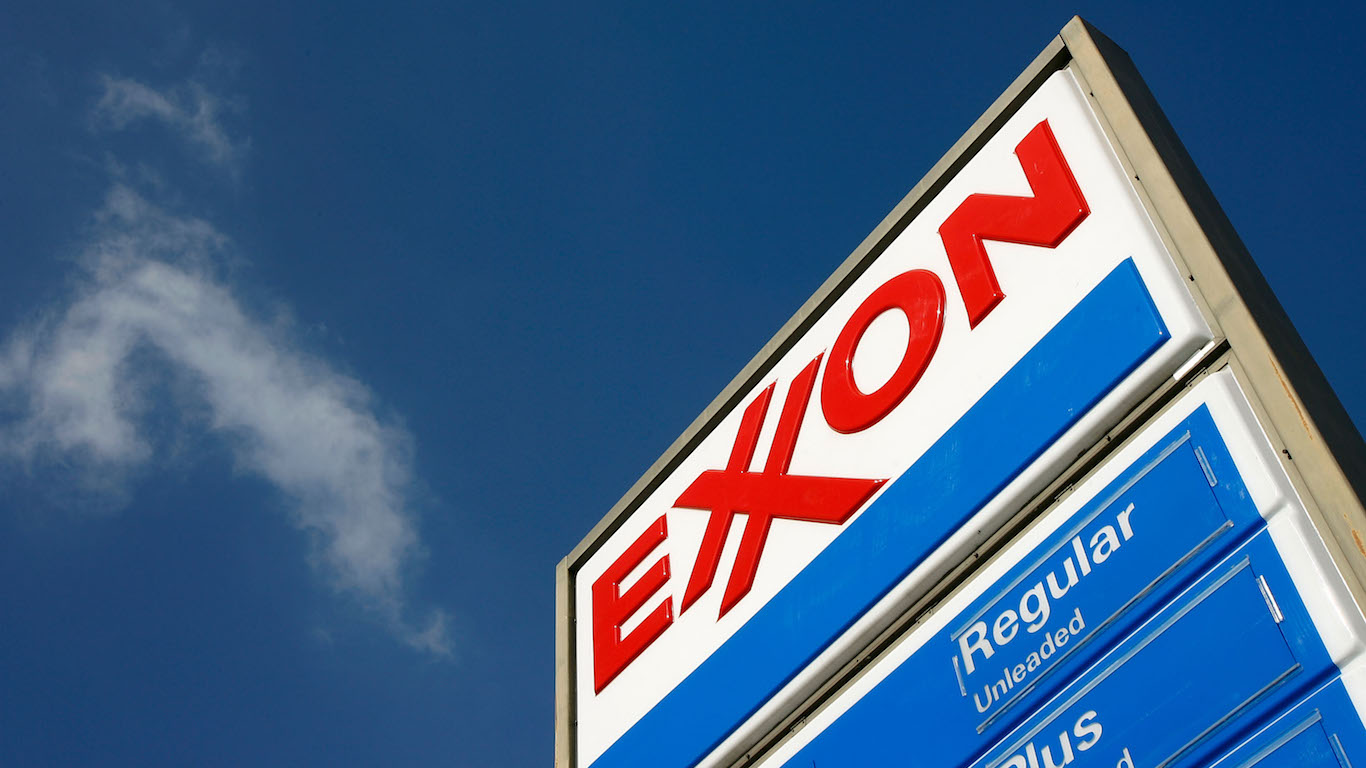
It takes a certain kind of courage to short sell blue chips, such as the Dow Jones industrial average components. Short sellers are betting on these companies to fail, or at least for their share prices to fall handily. Plus, those sellers are responsible for paying the dividends on the stocks they short.
Maybe it is little surprise that only two of the 30 Dow stocks had sizable short interest between June 30 and June 15; that is, more than 45 million shares short. A third of the index’s components had short interest of more than 25 million shares.
While the stock market had recovered much of its panic-selling losses from March, a new surge in the numbers of COVID-19 cases seemed to suggest that some states had “reopened” too soon. Investors trying to figure out what to do next may wonder then what the short sellers expected from some of the biggest, most well-respected names on Wall Street. Overall, they seemed cautious, as short interest moves were largely mild and mostly to the downside.
As of the end of the month settlement date, the most recently reported period, short sellers still favored Exxon Mobil Corp. (NYSE: XOM), Pfizer Inc. (NYSE: PFE) and Microsoft Corp. (NASDAQ: MSFT) above all other Dow stocks.
Exxon
> Shares short: around 52.70 million
> Change from prior period: −0.70%
> Percentage of float: 1.3
The oil supermajor saw little change in its short interest in the first half of this month, and so it remained the most shorted Dow stock. Note that the number of its shares short shrank by a double-digit percentage in the previous period. At the average daily volume on the latest settlement date, it would take investors more than two days to cover their short interest.
Many wondered if Exxon’s generous dividend could be on the chopping block. Short sellers watched the share price pull back more than 7% but then recover a bit and end the period where it started. Note that the Dow ended the initial two weeks of this month more than 3% higher.
After retreating 3% or so in the past week, Exxon Mobil stock closed trading most recently at $43.43 a share. That was in a 52-week range of $75.66 (about a year ago) to $30.11 (in March). The most recent share price is less than 33% higher since the year-to-date low in March, compared to more than a 40% gain in the S&P 500.
Pfizer
> Shares short: around 47.47 million
> Change from prior period: −7.8%
> Percentage of float: 0.9
This moderate pullback in Pfizer shares short still left the pharmaceutical leader clinging to the number two spot on the list. It also was still below the year-to-date high of around 61 million shares short seen back in January. At the average daily trading volume on the latest settlement date, the days to cover figure was less than two.
This maker of Lipitor, Viagra and Xanax is seen as one frontrunner in the race for a COVID-19 vaccine. Its shares climbed 9% or so in the first half of July, and that momentum continued after the settlement date. The S&P 500 rose about 3% during the short interest period.
Pfizer stock closed most recently at $37.66 per share, which is about 4% higher than a week ago. The 52-week low of $27.88 was seen in March, and the 52-week high of $43.23 was reached about a year ago. The shares now trade almost 4% higher than they did at the beginning of the year but are up nearly 30% from the March low.
Microsoft
> Shares short: more than 39.89 million
> Change from prior period: −7.5%
> Percentage of float: 0.5
Microsoft remained at the third spot on the list in the first two weeks of July despite the pullback in the number of shares short. It is the lowest reading since the 52-week low of around 37 million shares short that occurred back in February. It would take these investors more than a day to cover their short bets, as of mid-month.
Microsoft is expected to get a boost from the upcoming launch of its next-generation Xbox console. The shares ended the two weeks trading more than 2% higher, though they had been up over 6% earlier in the period. The Nasdaq saw a gain of less than 4% during the short interest period.
Microsoft stock was last seen trading at $201.30 a share, after hitting a multiyear high of $216.38 earlier this month. The 52-week low of $130.78 was seen last summer. The latest share price is almost 27% higher than the low during the pandemic sell-off, while the Nasdaq gained nearly 33% in that time.
And the Rest
Rounding out the top five most shorted Dow stocks on the most recent settlement date were Visa Inc. (NYSE: V) and Apple Inc. (NASDAQ: AAPL). Both the financial services provider and the iPhone maker saw the numbers of their shares short increase marginally early this month. Goldman Sachs initiated coverage of the former with a Buy rating during the period, while the latter was seen as a Joe Biden stock pick.
On the following list of short interest changes in the Dow stocks as of July 15, note that Coca-Cola Co. (NYSE: KO) and JPMorgan Chase & Co. (NYSE: JPM) bucked the overall trend of short seller caution. The beverage giant was seen as an undervalued defensive pick, while the latter is also expected to benefit from a Democrat in the White House.
| Dow Stock | Short (millions) | Change | % Float |
|---|---|---|---|
| Exxon | 52.70 | −0.70% | 1.25% |
| Pfizer | 47.47 | −7.79% | 0.86% |
| Microsoft | 39.89 | −7.51% | 0.53% |
| Visa | 36.69 | 3.23% | 2.18% |
| Apple | 35.23 | 3.74% | 0.81% |
| Cisco | 34.83 | −10.66% | 0.03% |
| Intel | 33.25 | −1.05% | 0.79% |
| Verizon | 30.98 | −7.83% | 0.75% |
| Coca-Cola | 26.97 | 11.34% | 0.63% |
| Disney | 26.04 | 1.56% | 1.45% |
| IBM | 23.24 | −4.11% | 2.62% |
| JPMorgan | 22.03 | 9.93% | 0.73% |
| Walgreens | 17.52 | −3.97% | 2.43% |
| Dow | 15.88 | −3.92% | 2.15% |
| Procter & Gamble | 15.79 | 6.15% | 0.64% |
| Merck | 14.64 | −1.60% | 0.58% |
| Raytheon Technologies | 13.34 | −2.13% | 1.54% |
| Johnson & Johnson | 12.51 | −2.12% | 0.40% |
| Walmart | 12.25 | −6.12% | 0.88% |
| Chevron | 11.95 | −4.40% | 0.64% |
| Boeing | 11.04 | −8.77% | 1.98% |
| Nike | 10.68 | −6.81% | 0.89% |
| American Express | 9.50 | −6.75% | 1.18% |
| Caterpillar | 6.89 | −5.12% | 1.28% |
| Home Depot | 6.68 | −9.64% | 0.62% |
| 3M | 6.50 | 0.53% | 1.13% |
| McDonald’s | 5.84 | −2.67% | 0.79% |
| Travelers | 5.09 | −4.09% | 2.02% |
| UnitedHealth | 5.04 | −9.30% | 0.54% |
| Goldman Sachs | 4.08 | −3.81% | 1.24% |
100 Million Americans Are Missing This Crucial Retirement Tool
The thought of burdening your family with a financial disaster is most Americans’ nightmare. However, recent studies show that over 100 million Americans still don’t have proper life insurance in the event they pass away.
Life insurance can bring peace of mind – ensuring your loved ones are safeguarded against unforeseen expenses and debts. With premiums often lower than expected and a variety of plans tailored to different life stages and health conditions, securing a policy is more accessible than ever.
A quick, no-obligation quote can provide valuable insight into what’s available and what might best suit your family’s needs. Life insurance is a simple step you can take today to help secure peace of mind for your loved ones tomorrow.
Click here to learn how to get a quote in just a few minutes.
Thank you for reading! Have some feedback for us?
Contact the 24/7 Wall St. editorial team.

 24/7 Wall St.
24/7 Wall St.



